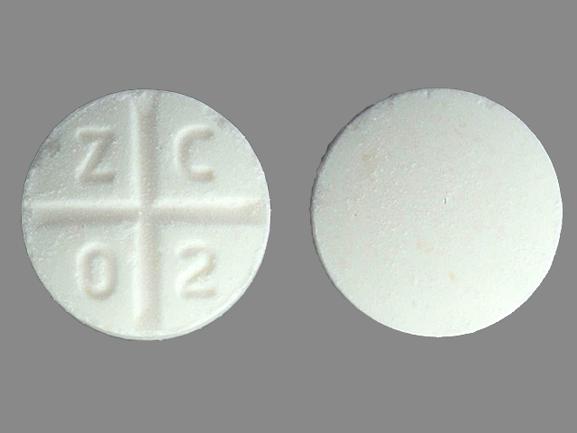Promethazine (injection)
Generic name: promethazine (injection) [ pro-METH-a-zeen ]
Brand name: Phenergan
Dosage form: injectable solution (25 mg/mL; 50 mg/mL)
Drug classes: Antihistamines, Phenothiazine antiemetics
What is promethazine injection?
Promethazine is used to treat or prevent nausea and vomiting caused by anesthesia or surgery, certain types of allergic reactions, pain caused by surgery or childbirth, motion sickness, and to sedate patients before surgery or medical procedures.
Promethazine injection is usually given when a person cannot take the medication orally (by mouth).
Promethazine injection may also be used for purposes not listed in this medication guide.
Promethazine injection side effects
Get emergency medical help if you have signs of an allergic reaction: hives; difficult breathing; swelling of your face, lips, tongue, or throat.
Promethazine may cause serious side effects. Call your doctor at once if you have:
-
pain, burning, irritation, or skin changes where the injection was given;
-
severe pain, swelling, numbness, cold feeling, or discoloration in your fingers or toes;
-
weak or shallow breathing;
-
hallucinations;
-
uncontrolled muscle movements in your face (chewing, lip smacking, frowning, tongue movement, blinking or eye movement);
-
jaundice (yellowing of the skin or eyes);
-
easy bruising or bleeding (nosebleeds, bleeding gums);
-
sudden weakness or ill feeling, fever, chills, sore throat, mouth sores, red or swollen gums, trouble swallowing; or
-
severe nervous system reaction--very stiff (rigid) muscles, high fever, sweating, confusion, fast or uneven heartbeats, tremors, feeling like you might pass out.
Common side effects of promethazine may include:
-
drowsiness, dizziness;
-
ringing in your ears;
-
double vision;
-
feeling nervous;
-
dry mouth; or
-
tiredness, sleep problems (insomnia).
This is not a complete list of side effects and others may occur. Call your doctor for medical advice about side effects. You may report side effects to FDA at 1-800-FDA-1088.
Related/similar drugs
Warnings
Promethazine should not be given to a child younger than 2 years old. Promethazine can cause severe breathing problems or death in very young children.
Tell your caregivers if you feel any burning, pain, or swelling around the IV needle when promethazine is injected.
Call your doctor at once if you later develop symptoms throughout your body, such as: severe pain, burning, swelling, numbness, cold feeling, severe irritation, skin changes, or discoloration in your fingers or toes.
Before taking this medicine
You should not receive promethazine if you are allergic to promethazine or to similar medicines such as chlorpromazine, fluphenazine, mesoridazine, perphenazine, prochlorperazine, thioridazine, or trifluoperazine.
Promethazine should not be given to a child younger than 2 years old. Promethazine can cause severe breathing problems or death in very young children.
Tell your doctor if you have ever had:
-
asthma, chronic obstructive pulmonary disease (COPD), sleep apnea, or other breathing disorder;
-
a sulfite allergy;
-
a history of seizures;
-
a weak immune system (bone marrow depression);
-
glaucoma;
-
enlarged prostate or problems with urination;
-
stomach ulcer or obstruction;
-
liver disease; or
-
if you have ever had a serious side effect while using promethazine or any other phenothiazine.
Tell your doctor if you are pregnant or breastfeeding.
How is promethazine injection given?
Promethazine is injected deep into a muscle. A healthcare provider will give you this injection.
Tell your caregivers if you feel any burning, pain, or swelling around the IV needle when promethazine is injected.
Promethazine injection is usually given for only a short time until no longer needed or until you can take promethazine by mouth.
This medicine can cause unusual results with certain medical tests. Tell any doctor who treats you that you have recently received promethazine injection.
What happens if I miss a dose?
Since promethazine injection is given by a healthcare professional, you are not likely to miss a dose.
What happens if I overdose?
Seek emergency medical attention or call the Poison Help line at 1-800-222-1222.
Overdose symptoms may include overactive reflexes, loss of coordination, severe drowsiness or weakness, fainting, dilated pupils, weak or shallow breathing, or seizure (convulsions).
What should I avoid while receiving promethazine injection?
promethazine may impair your thinking or reactions. Be careful if you drive or do anything that requires you to be alert. Avoid getting up too fast from a sitting or lying position, or you may feel dizzy. Get up slowly and steady yourself to prevent a fall.
Avoid exposure to sunlight or tanning beds. Promethazine can make you sunburn more easily. Wear protective clothing and use sunscreen (SPF 30 or higher) when you are outdoors.
What other drugs will affect promethazine injection?
Using promethazine injection with other drugs that make you drowsy can worsen this effect. Ask your doctor before using opioid medication, a sleeping pill, a muscle relaxer, or medicine for anxiety or seizures.
Other drugs may affect promethazine injection, including prescription and over-the-counter medicines, vitamins, and herbal products. Tell your doctor about all other medicines you use.
Frequently asked questions
- Par promethazine with codeine vs Hi-Tech promethazine with codeine?
- How long does promethazine stay in your system?
More about promethazine
- Check interactions
- Compare alternatives
- Pricing & coupons
- Reviews (399)
- Drug images
- Latest FDA alerts (4)
- Side effects
- Dosage information
- Patient tips
- During pregnancy
- Support group
- Drug class: antihistamines
- Breastfeeding
Patient resources
Other brands
Phenergan, Promethegan, Antinaus 50, Phenadoz
Professional resources
- Promethazine (Antihistamine) monograph
- Promethazine (Sedative) (AHFS Monograph)
- Promethazine (FDA)
- Promethazine Injection (FDA)
- Promethazine Suppositories (FDA)
Other brands
Related treatment guides
Further information
Remember, keep this and all other medicines out of the reach of children, never share your medicines with others, and use this medication only for the indication prescribed.
Always consult your healthcare provider to ensure the information displayed on this page applies to your personal circumstances.
Copyright 1996-2025 Cerner Multum, Inc. Version: 6.01.

